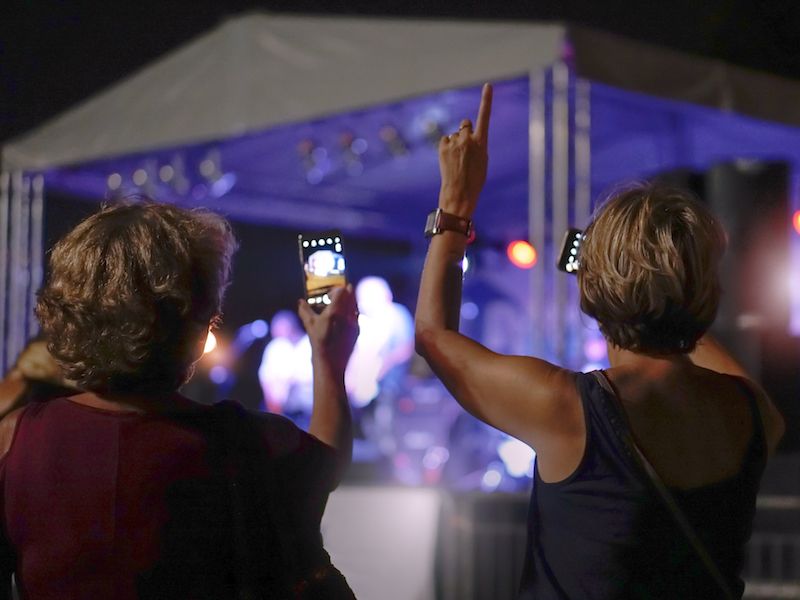
We’ve been looking forward to summer activities all year: going to the beach, chilling out by the swimming pool, and injured hearing? You could find yourself in environmental situations or exposed to other loud noises this summer that are hidden dangers to your ears. Any noises above 80 decibels can injure your ears, while lasting loss of hearing can take hold in swimming pools or other bodies of water. You have to take preventative measures and be mindful of your surroundings so that you can keep your hearing safe this summer season. Keep reading to learn the summer’s 6 hidden dangers to your ears.
When You go to Concerts, Use Ear Protection
Whether you’re at an indoor stadium or an outdoor concert venue you still should wear hearing protection during live music. Live music can reach that are over 90 decibels, even at outside concerts, which is inside of the danger zone of hearing loss. So regardless of whether you’re going to outside or inside concerts, it’s a smart plan to wear earplugs. You can still hear the tunes with earplugs it’s just dampened slightly. If you’re going to a show with young children, consider buying them a heavy duty set of earmuffs since their hearing is much more delicate than those of adults.
Your Ears Can be Damaged by Fireworks
Honestly, there are a lot of reasons to avoid fireworks in the summer. We’re not talking about the expert 4th of July fireworks show, we mean the backyard fireworks which every summer season cause hundreds of injuries. Along with causing hand traumas, loss of sight, and home fires, personal fireworks can also cause severe damage to your ears since they are known to reach volume levels of 155 dB. This year, on the 4th of July, appreciate the fireworks from a distance and leave the fireworks to the pro’s.
Mowers Can Cause Hearing Loss
If you love to take care of your yard, mower, edger, and trimer are your best friends. But that muffled feeling in your ears is an indication that your ears have been damaged. That’s because the lawn tools, which are constantly loud, impact your hearing over time. If you’ve ever noticed landscapers, it is likely you have seen them utilizing hearing protection, next time you do yard work with loud power equipment, you should take a cue from them and use earmuffs or earplugs.
Here’s How to Safeguard Your Ears When You go Swimming
Huge numbers of people suffer from swimmer’s ear every summer, which happens when the ear canal traps water that is high in bacteria. Swelling and painful earaches are the result when the bacteria infects the ear. These bacteria are generally found in rivers and lakes but sometimes also live in pools and hot tubs if the water is not properly treated. But if you have your ears treated by a hearing expert you should be fine, and no irreversible loss of hearing will occur. To prevent swimmer’s ear, however, you should wear special swimming earplugs in the pool and get your pool water tested to make sure the chemical balance is ok.
Boats and Other Water Sports
If you enjoy the water, summer is beach and boating time for you. But, boat and jet ski engines can be loud,they can get up to over 100 decibels. Continuous exposure to that much noise for a period of about 15 minutes can result in lasting hearing impairment. Again, it’s probably in your best interests to use a couple of throw away, foam earplugs when you’re out on the water to make certain you don’t inadvertently harm your ears.
Your Hearing Can be Harmed by Car Races
It doesn’t make a difference what type of auto racing you love, motorcycle, midget, Formula 1, drag racing or stock cars. Every one of them can cause a huge challenge for your hearing if you go to many races during the summer. It’s calculated that sound levels can exceed 120 decibels at some races, which is certainly in the danger zone for hearing damage. Earplugs are your best friends at these races, although your kids should definitely wear the earmuffs we mentioned earlier. Otherwise, you might not get to enjoy the sound of those engines as you get older.